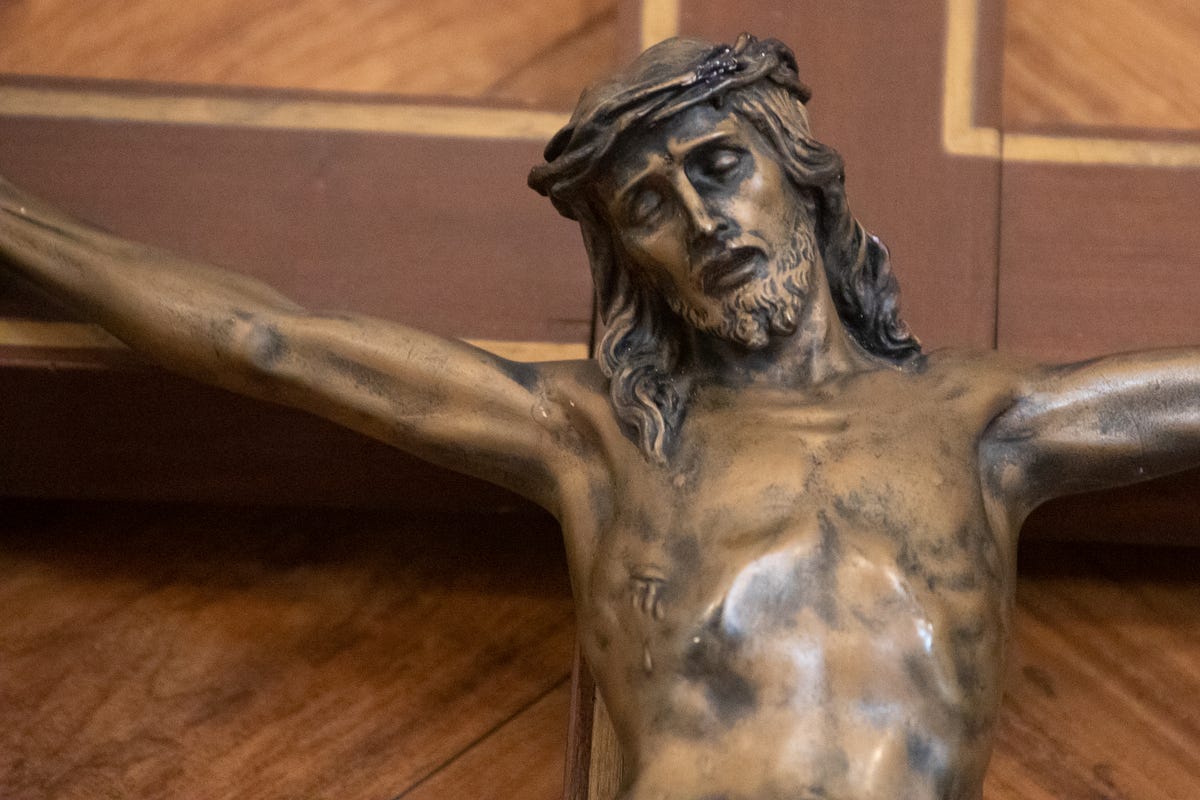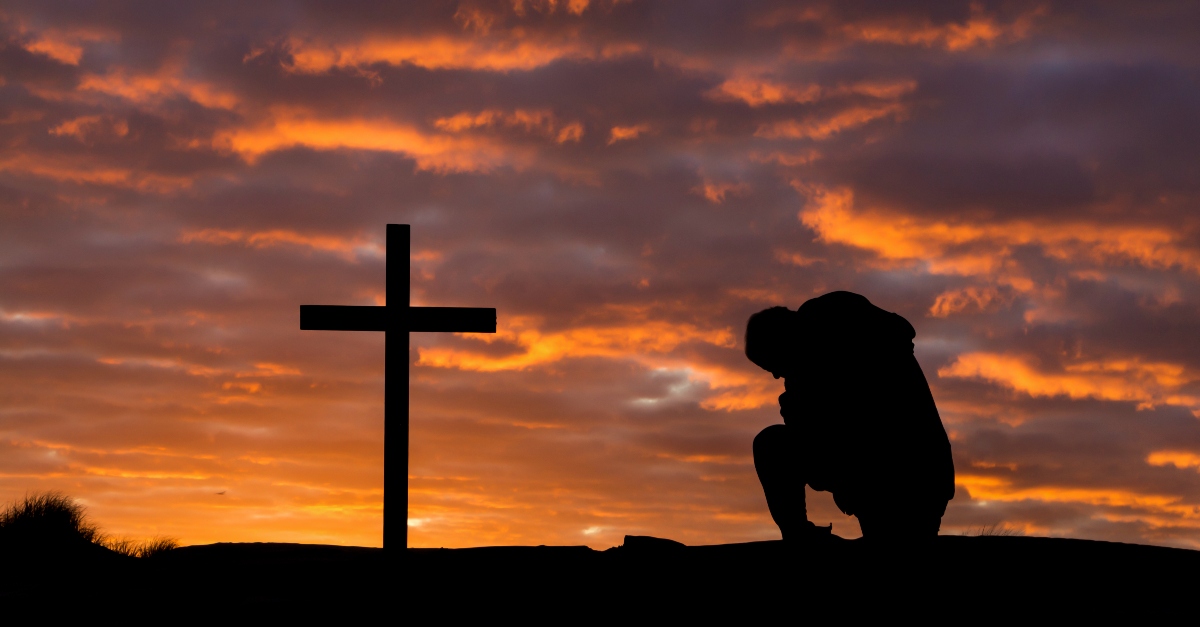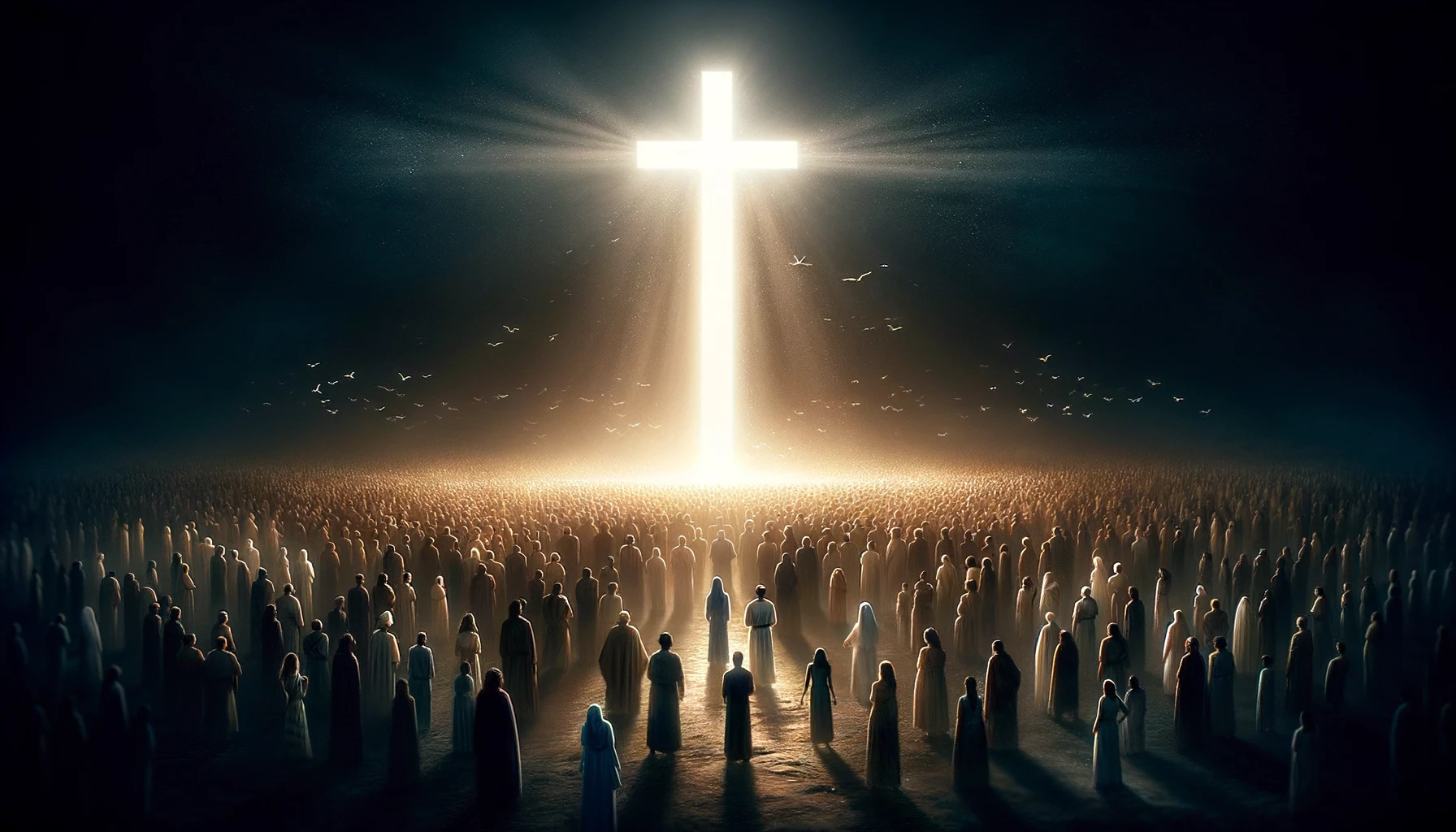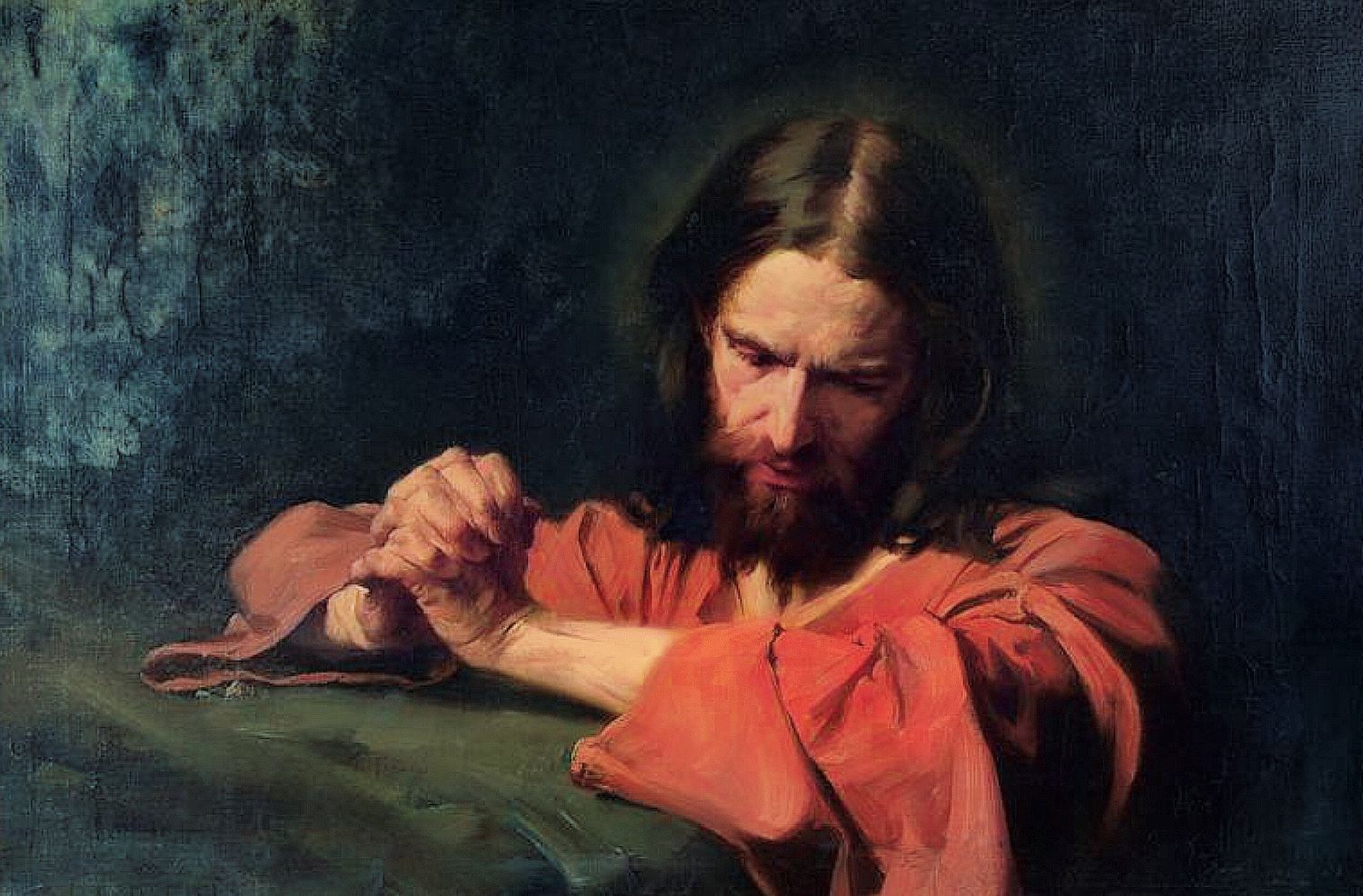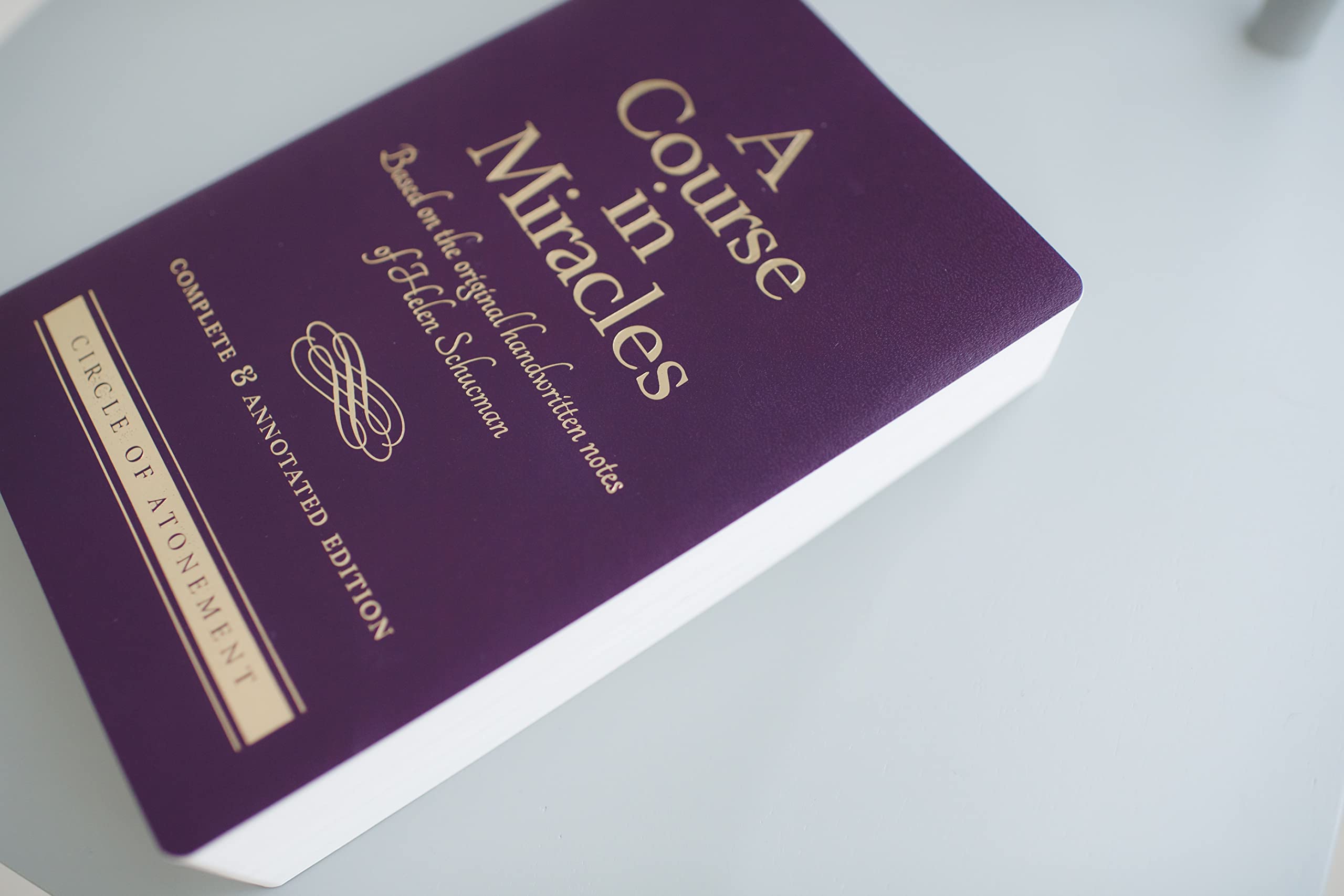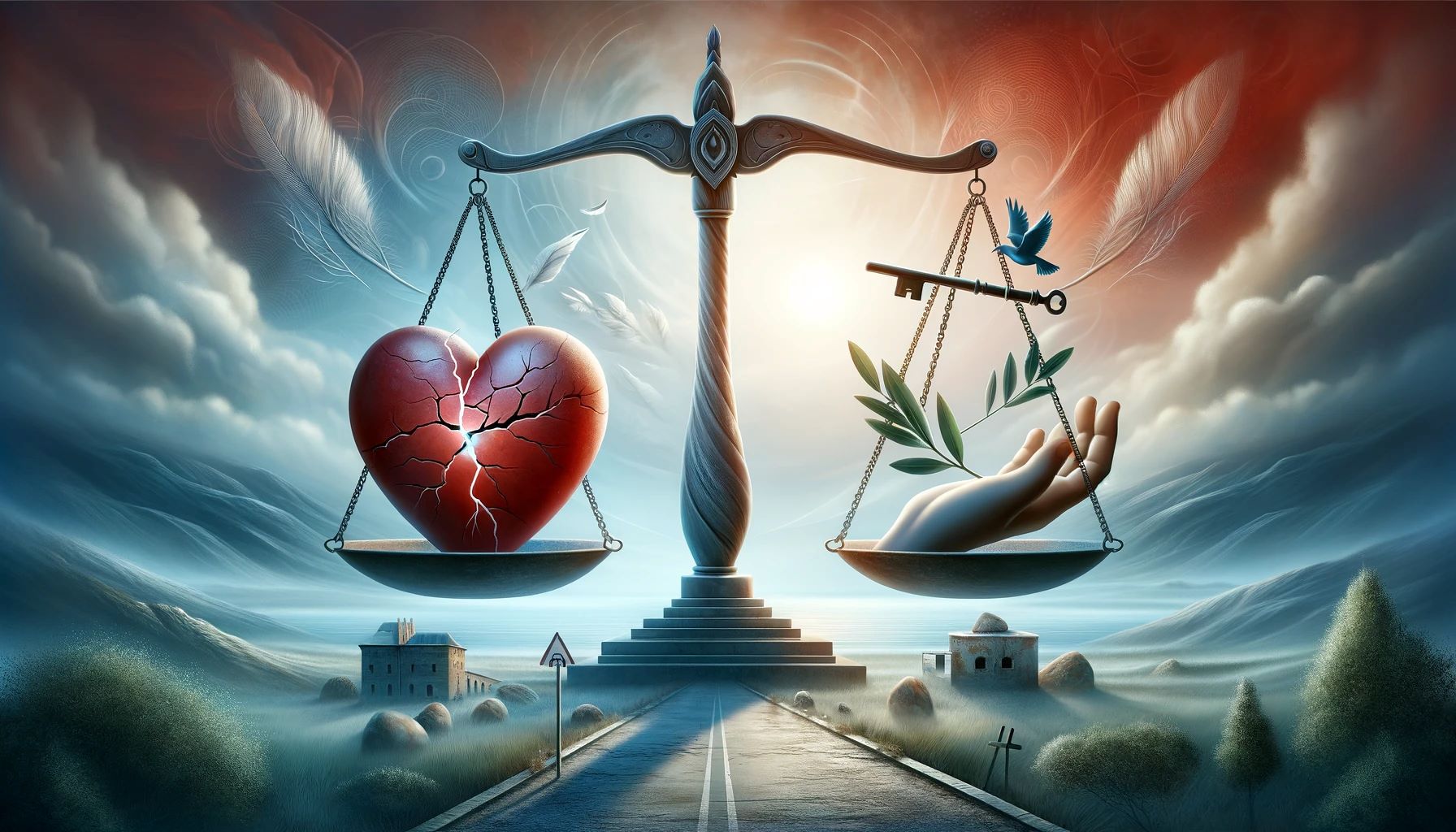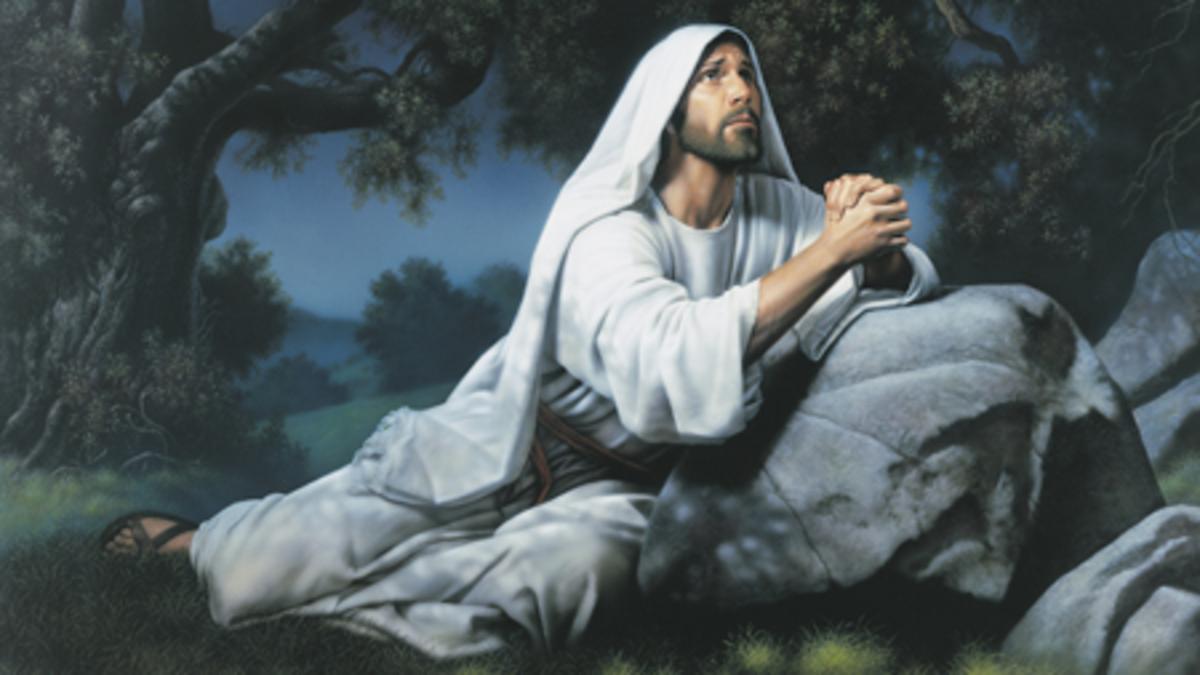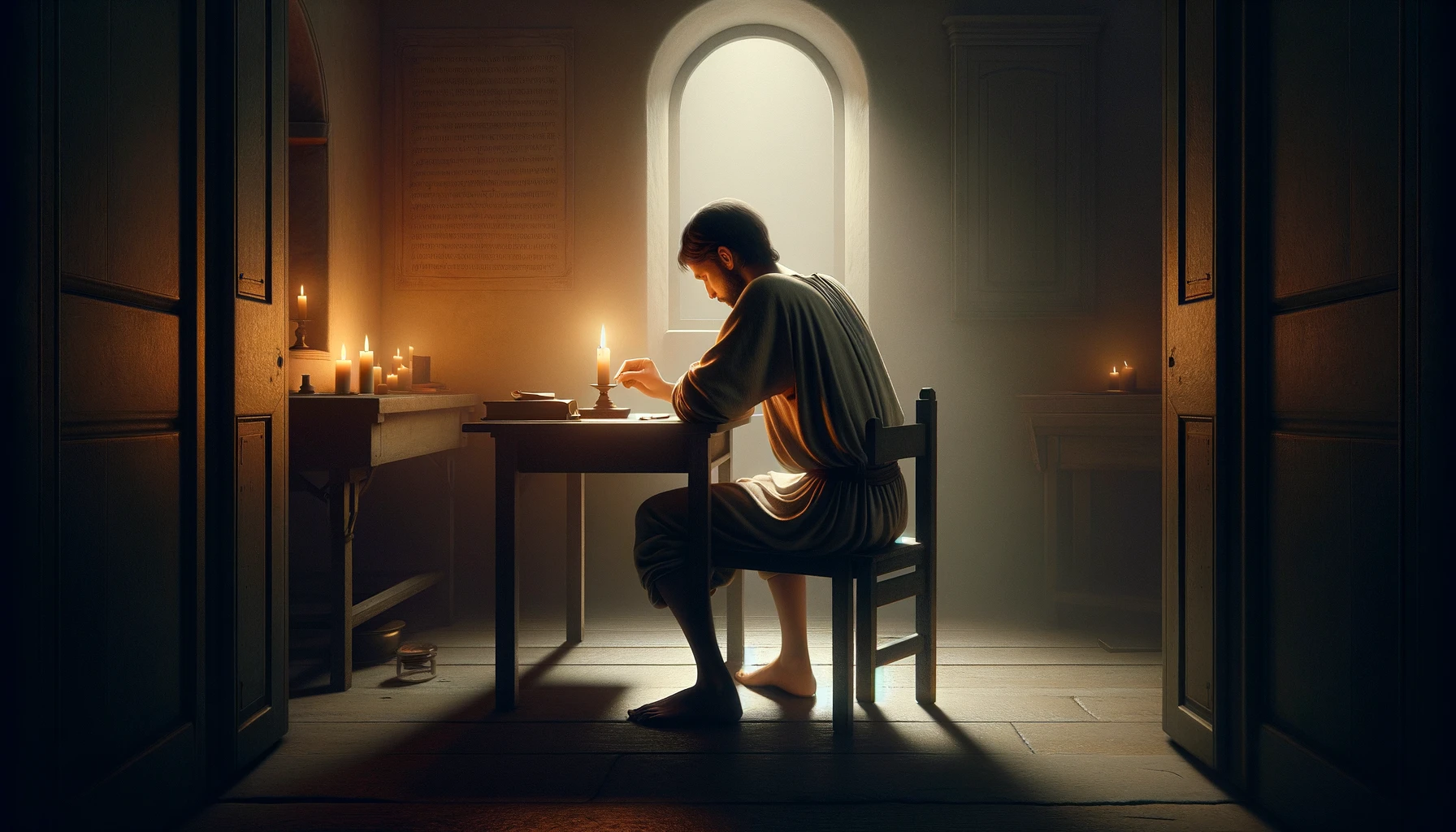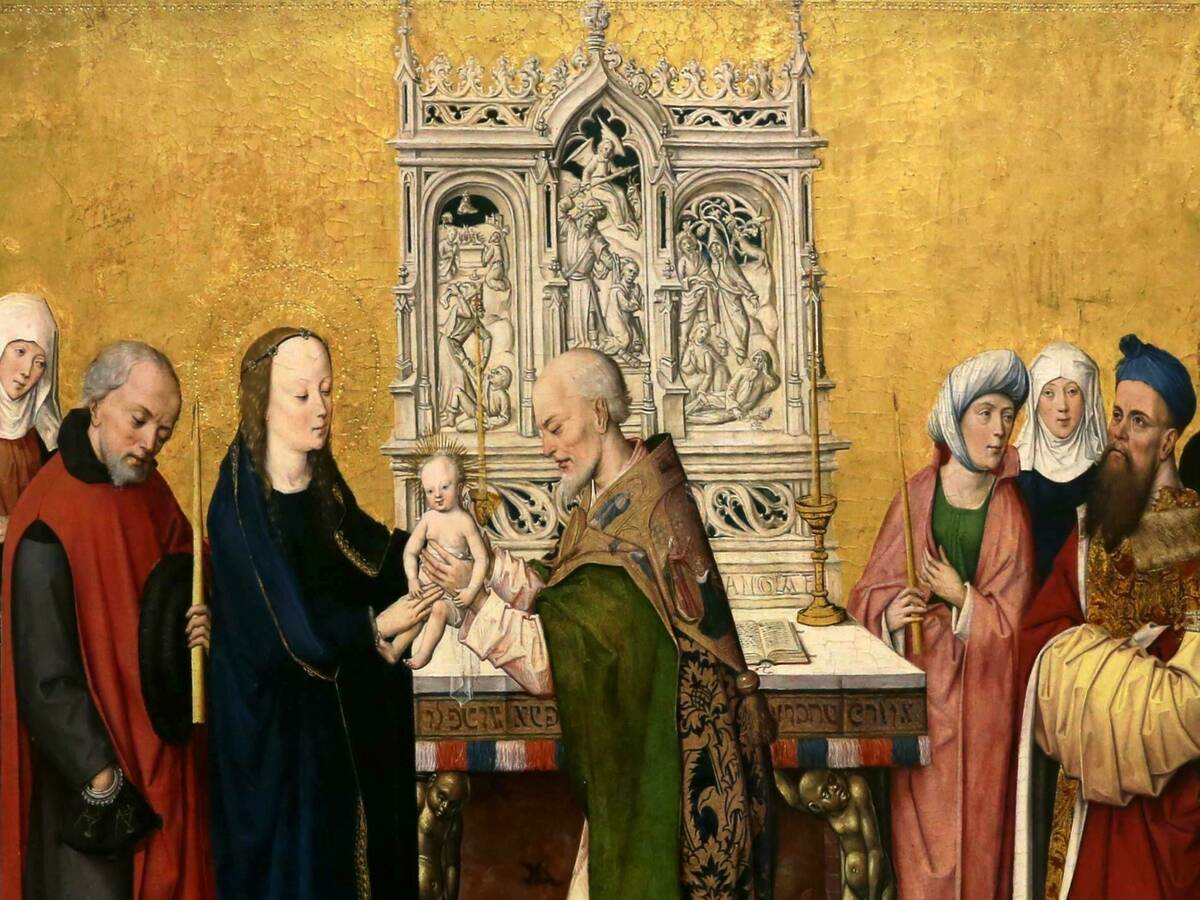Home>Theology and Spirituality>What Was Hercules’ Path To Atonement
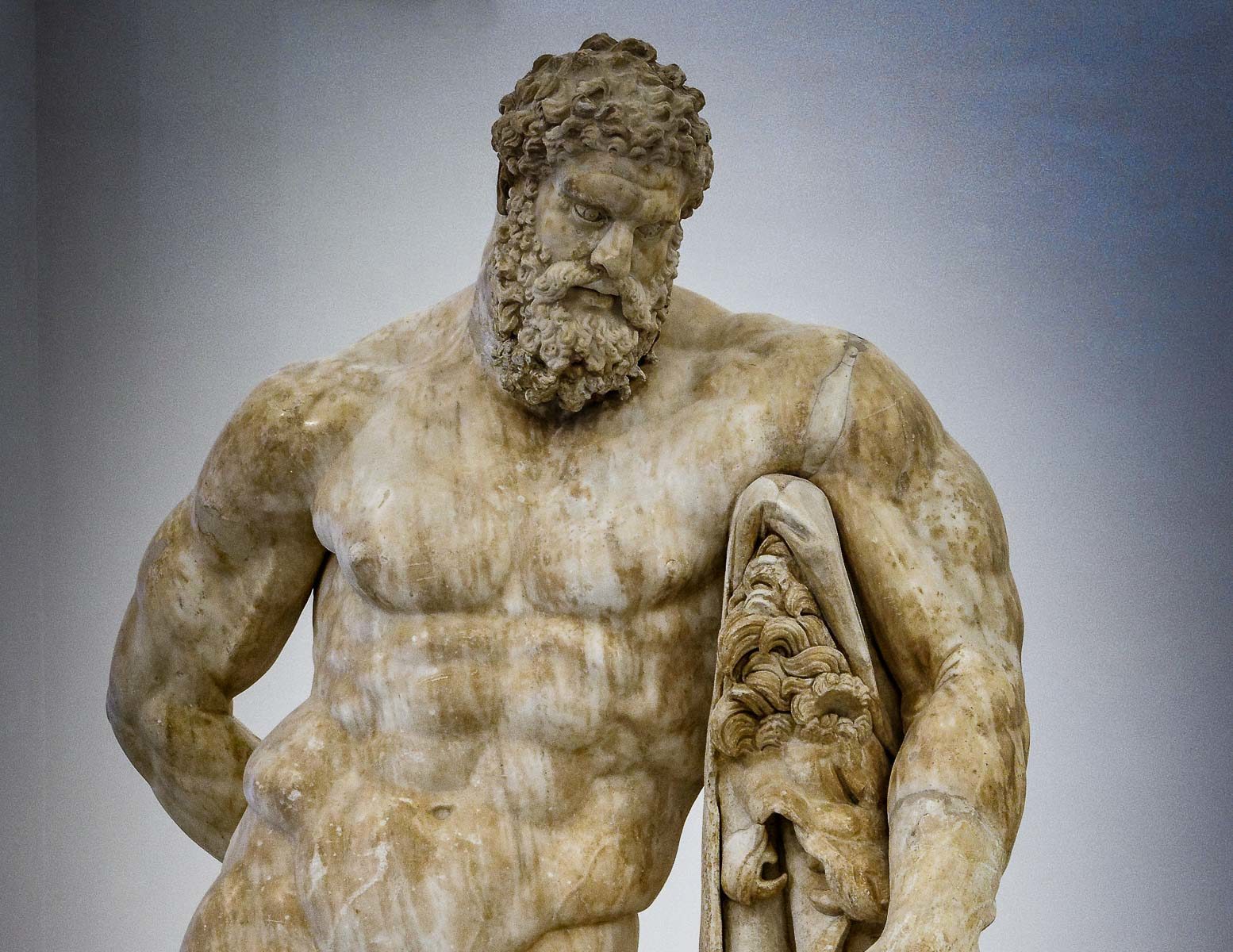

Theology and Spirituality
What Was Hercules’ Path To Atonement
Published: February 10, 2024
Jason DeRose, Managing Editor at Christian.net, uses his expertise in religion and journalism to deepen understanding of faith's societal impacts. His editorial leadership, coupled with a strong academic background, enriches the platform’s diverse content, earning him recognition in both journalism and religious circles.
Explore Hercules' journey to atonement and redemption in theology and spirituality. Uncover the mythological hero's path to forgiveness and transformation.
(Many of the links in this article redirect to a specific reviewed product. Your purchase of these products through affiliate links helps to generate commission for Christian.net, at no extra cost. Learn more)
Table of Contents
Introduction
Hercules, the legendary figure of ancient Greek mythology, is renowned for his extraordinary strength and his arduous journey to redemption. His tale is one of great triumphs and profound tragedies, ultimately culminating in a quest for atonement that has captivated audiences for centuries.
The story of Hercules is a timeless narrative that delves into the complexities of human nature, the consequences of one's actions, and the pursuit of redemption. It is a tale that resonates with individuals across cultures and generations, as it explores themes of resilience, growth, and the enduring human spirit.
Throughout history, Hercules has been depicted as a symbol of strength, courage, and the indomitable will to overcome adversity. His journey serves as a poignant reminder that even the mightiest among us are not immune to the frailties of the human condition.
As we delve into the intricacies of Hercules' path to atonement, we will unravel the layers of his character, the challenges he faced, and the profound impact of his transformative journey. From his early life and tragic acts to the monumental Twelve Labors and his relentless pursuit of redemption, Hercules' story is a testament to the enduring power of the human spirit and the unwavering resolve to seek forgiveness and reconciliation.
Join us as we embark on a compelling exploration of Hercules' odyssey, delving into the depths of his trials and tribulations, and ultimately, his unwavering quest for atonement.
Read more: What Is Atonement
Hercules' Early Life and Tragic Acts
Hercules, the son of Zeus, the king of the gods, and Alcmene, a mortal woman, was destined for greatness from the moment of his birth. However, his path to glory was marred by a series of tragic events that would shape his destiny and propel him on a tumultuous journey of redemption.
From his infancy, Hercules exhibited extraordinary strength and valor, traits that would later define his mythic exploits. Yet, his early life was overshadowed by the vengeful machinations of Hera, Zeus' wife, who harbored a deep resentment towards Hercules due to his divine lineage. In a fit of jealousy, Hera inflicted madness upon Hercules, leading him to commit unfathomable acts of tragedy and destruction.
Driven to madness by Hera's cruel intervention, Hercules unwittingly slew his own wife and children in a harrowing display of unbridled strength. The weight of this unfathomable atrocity plunged Hercules into a profound abyss of remorse and anguish, casting a dark shadow over his once-promising future.
The anguish and guilt that consumed Hercules in the aftermath of this unspeakable tragedy became the catalyst for his transformative journey. Haunted by the devastating consequences of his actions, Hercules embarked on a quest for redemption, seeking a means to atone for the irreparable harm he had wrought upon his loved ones.
The tale of Hercules' early life and tragic acts serves as a poignant reminder of the complexities of the human experience. It underscores the profound impact of fate, divine intervention, and the enduring struggle between mortal frailty and divine heritage. Hercules' journey from innocence to anguish lays the foundation for his subsequent odyssey, as he endeavors to transcend the shadows of his past and carve a path towards redemption and absolution.
As we delve deeper into the intricacies of Hercules' transformative odyssey, we are compelled to confront the profound depths of his sorrow and the unwavering resolve that fuels his relentless pursuit of atonement. The tragic acts that marked his early life would ultimately set the stage for a series of monumental trials and tribulations, propelling Hercules towards a destiny that would forever alter the course of his mythic legacy.
The Twelve Labors of Hercules
The Twelve Labors of Hercules stand as a testament to the unparalleled strength, resilience, and unwavering determination that defined his mythic odyssey. These monumental trials, imposed upon Hercules as a means of atonement for his tragic acts, encapsulate the essence of his transformative journey and the indomitable spirit that propelled him towards redemption.
Hercules' first labor was to slay the Nemean Lion, a fearsome beast with impenetrable golden fur and razor-sharp claws. Undeterred by the creature's formidable defenses, Hercules strangled the lion with his bare hands, marking the commencement of his arduous trials.
Subsequent labors led Hercules to confront the Lernaean Hydra, a serpentine monster with regenerative heads, and the elusive Golden Hind of Artemis, a creature of unparalleled speed and agility. He also embarked on quests to capture the Erymanthian Boar, clean the Augean stables in a single day, and drive away the Stymphalian Birds with a cacophonous clamor.
Hercules' trials escalated in intensity as he was tasked with capturing the ferocious Cretan Bull, obtaining the man-eating Mares of Diomedes, and retrieving the girdle of Hippolyta, Queen of the Amazons. His exploits extended to capturing the formidable cattle of the monstrous Geryon and seizing the golden apples of the Hesperides, guarded by a dragon.
The penultimate labor saw Hercules descend into the depths of the Underworld to capture the three-headed hound Cerberus, guardian of the realm of the dead. His final labor entailed the daunting task of cleansing the Augean stables by diverting the course of two mighty rivers to wash away the accumulated filth.
Throughout these trials, Hercules demonstrated unparalleled valor, ingenuity, and unwavering resolve, overcoming seemingly insurmountable challenges with sheer determination and indomitable strength. Each labor served as a crucible, forging Hercules' character and fortifying his spirit as he relentlessly pursued absolution for his past transgressions.
The Twelve Labors of Hercules stand as a testament to the enduring power of the human spirit and the capacity for redemption. Through these monumental trials, Hercules embarked on a transformative odyssey, transcending the shadows of his past and forging a legacy that would resonate through the annals of time. His unwavering commitment to atonement and his unparalleled feats of strength and valor continue to inspire and captivate audiences, underscoring the timeless allure of his mythic odyssey.
Hercules' Quest for Atonement
Following the completion of the Twelve Labors, Hercules found himself standing at the precipice of redemption, poised to confront the shadows of his tumultuous past and seek absolution for his tragic transgressions. His odyssey for atonement transcended the realm of physical trials, delving into the depths of his soul as he grappled with the profound weight of his actions.
Driven by an unwavering resolve to reconcile his past misdeeds, Hercules embarked on a spiritual quest, seeking to mend the shattered fragments of his existence and pave a path towards reconciliation. His journey led him to confront the complexities of guilt, remorse, and the enduring pursuit of forgiveness, as he endeavored to transcend the specter of his past and forge a new legacy defined by redemption and enlightenment.
Amidst his quest for atonement, Hercules sought counsel from the wise centaur Chiron, renowned for his profound wisdom and insight. Under Chiron's guidance, Hercules delved into the labyrinth of his own conscience, confronting the tumultuous emotions that had long plagued his spirit. Through introspection and introspective contemplation, Hercules grappled with the profound depths of his remorse, seeking to unearth the seeds of redemption that lay dormant within his tormented soul.
As Hercules navigated the tumultuous terrain of his inner turmoil, he encountered numerous trials that tested the very fabric of his being. From the haunting echoes of his past to the relentless whispers of self-doubt, Hercules confronted the formidable adversaries that lurked within the recesses of his own psyche. Each trial became a crucible, forging his spirit and fortifying his resolve as he endeavored to transcend the shadows of his past and emerge reborn, cleansed of the burdens that had long weighed upon his conscience.
Ultimately, Hercules' quest for atonement transcended the realm of mortal trials, evolving into a profound odyssey of self-discovery and spiritual enlightenment. Through his unwavering commitment to seek forgiveness and reconciliation, Hercules exemplified the enduring power of the human spirit to transcend adversity and emerge victorious in the pursuit of redemption.
As the echoes of his tumultuous journey reverberate through the annals of time, Hercules' quest for atonement stands as a testament to the indomitable will of the human spirit and the enduring capacity for transformation and renewal. His odyssey serves as a timeless reminder that even in the wake of tragedy and despair, the pursuit of atonement and redemption remains an unwavering beacon of hope, illuminating the path towards reconciliation and inner peace.
Conclusion
In the annals of mythology, the tale of Hercules' path to atonement stands as a timeless testament to the enduring power of the human spirit and the unwavering pursuit of redemption. From his early life marred by tragedy to the monumental Twelve Labors and his transformative quest for absolution, Hercules' odyssey encapsulates the profound complexities of the human experience and the indomitable will to transcend adversity.
The narrative of Hercules' journey serves as a poignant reminder that even the mightiest among us are not immune to the frailties of the human condition. His struggles, triumphs, and unwavering commitment to seek atonement resonate with audiences across cultures and generations, transcending the confines of time and space.
Through the Twelve Labors, Hercules demonstrated unparalleled strength, valor, and resilience, overcoming seemingly insurmountable challenges with unwavering determination. Each trial became a crucible, forging his character and fortifying his spirit as he relentlessly pursued absolution for his past transgressions.
Hercules' quest for atonement extended beyond the realm of physical trials, delving into the depths of his soul as he grappled with the profound weight of his actions. His journey epitomized the enduring struggle between mortal frailty and divine heritage, underscoring the complexities of guilt, remorse, and the unwavering pursuit of forgiveness.
Ultimately, Hercules' odyssey for atonement serves as a timeless reminder that the pursuit of redemption remains an unwavering beacon of hope, illuminating the path towards reconciliation and inner peace. His transformative journey exemplifies the enduring capacity for transformation and renewal, inspiring individuals to confront their own trials with courage and resilience.
As the echoes of his tumultuous odyssey reverberate through the corridors of time, Hercules' legacy endures as a symbol of the human spirit's unyielding resolve to seek absolution and transcend the shadows of the past. His tale continues to captivate and inspire, serving as a timeless testament to the enduring power of the human spirit in the relentless pursuit of atonement and redemption.
